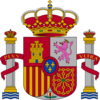
Corporate Enterprises Act (Ley De Sociedades De Capital) – Company Law
The Porate Enterprises Act (Ley de Sociedades de Capital) is the official legislation of the rules and regulations of a company incorporated in Spain. You will find below the key extracts from the Companies Act (Ley de Sociedades de Capital) along with the full act.
Company Name 
The names of limited liability companies shall include the words Sociedad de Responsibilidad Limitada or Sociedad Limitada or their respective abbreviations, “S.R.L.” or “S.L.”.
The names of joint stock companies shall include the words Sociedad Anónima or the abbreviation “S.A.”.
Deed of Incorporation 
The deed of incorporation of any corporate enterprise shall include.
- The identity of the partner or partners
- The aim to form a corporate enterprise, specifying the type of body corporate
- The contributions made, as well as the numbers of the stakes or shares attributed thereto as consideration
- Company bylaws
- The identity of the person or persons initially entrusted with company management and representation
With limited liability companies, the deed of incorporation shall determine the specific arrangements to be adopted for company management, if the bylaws envisage several options.
Registered Office
Companies shall establish their registered office in Spain where their actual administrative and management activities, or their main business establishment or operation, are located.
Directors
Directors of corporate enterprises may be individuals or bodies corporate.
None of the following is eligible to be a company director: minors, the legally incompetent, persons disqualified pursuant to the Insolvency Act, and persons convicted for any manner of falsehood or of crimes against freedom, property, socio-economic order, public safety, or the administration of justice.
Share Capital
In limited liability companies the capital shall be at least three thousand euros and denominated in that currency.
In joint stock companies the share capital shall be at least sixty thousand euros and denominated in that currency.
Certificate of Good Standing 
A Certificate of Good Standing does not exist as such in Spain, but we can obtain a Nota Simple document that serves a similar purpose. This document proves the existence and registration of the Spanish company.
The Spanish Nota Simple contains the following information about the company:
- Name of company
- Name of the registry – Registro Mercantil Central
- Registry details – number in the registry, tax reference number
- Incorporation date
- Company object – this can be important in Spain, as a contract could be ‘ultra vires’ or subject to special rules
- Capital issued
- Capital paid
- Name of Directors/ Administradores – or people with Power of Attorney (the POA needs to be registered)
- Information about published data – incorporation, lodging of accounts, changes in directors and others, as required by law
Company Restoration 
The general meeting may agree to restore a wound-up company to active life provided the cause for which it was wound up is remedied, book equity is not lower than company capital and no surplus after liquidation has been paid to partners. Reactivation decisions may not be made where winding-up was instituted as per the law.
The decision on reactivation shall be adopted pursuant to the requirements established for amendment to the bylaws.


